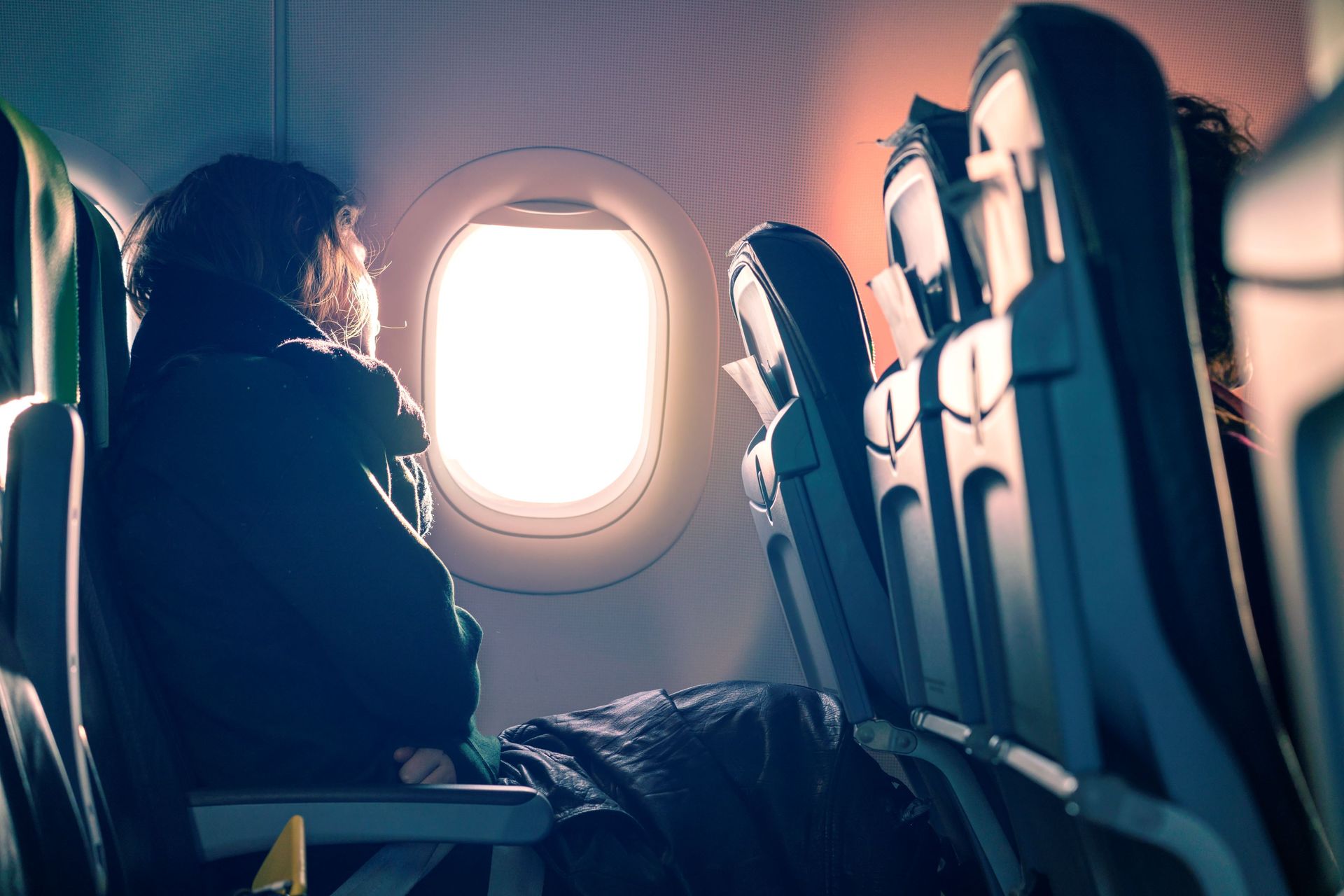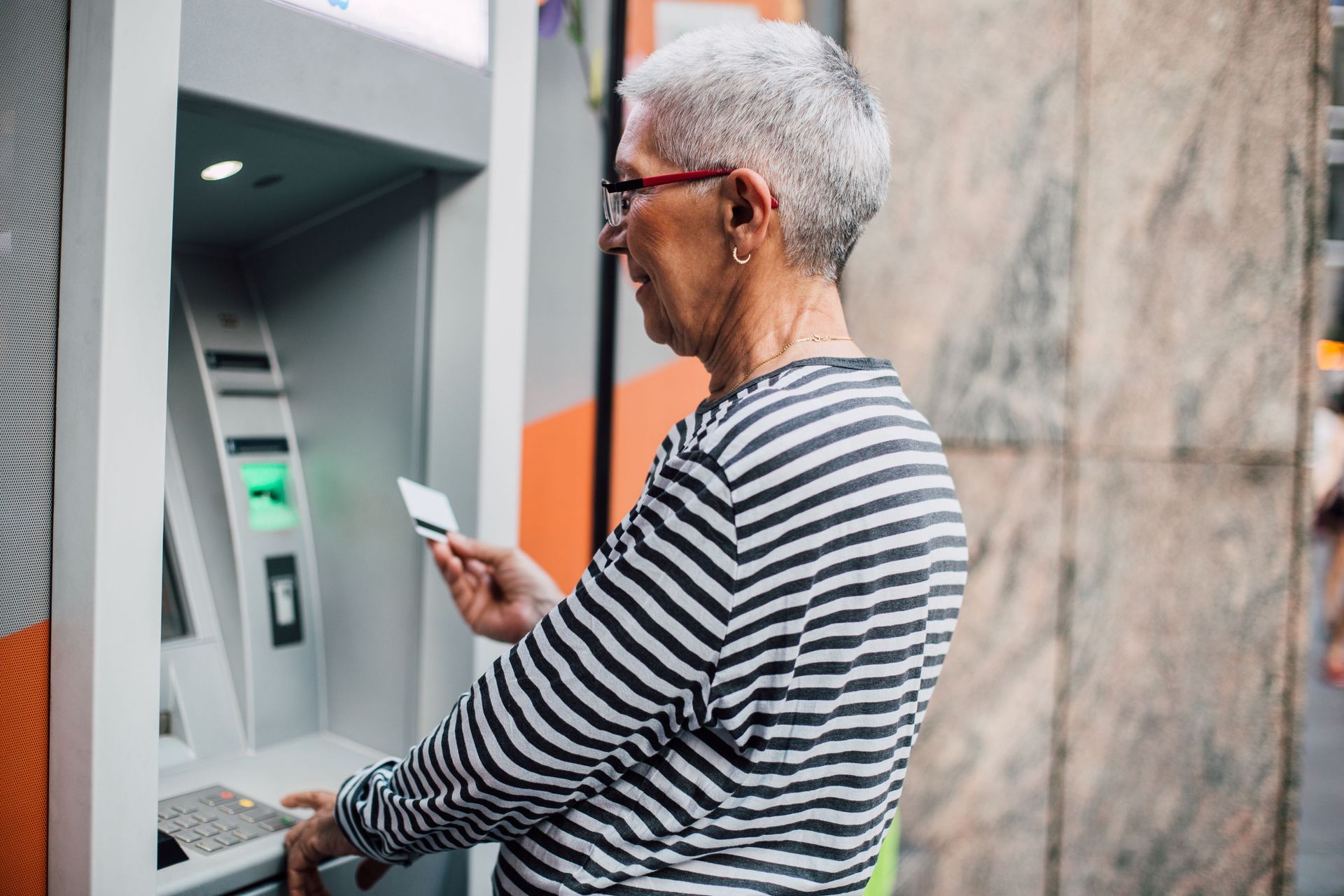13 Money-Saving Travel Tips for Retirees
Globetrotting in your golden years doesn't have to cost a fortune. Here are some ways to cut down on your travel expenses.
- (opens in new tab)
- (opens in new tab)
- (opens in new tab)
- Newsletter sign up Newsletter

Traveling the world was always part of Patti and Abi Maghamfar's retirement plan. In 2017, the couple sold their home in a Washington, D.C., suburb and bought one-way tickets to Europe. From June until just before Christmas that year, they visited 14 destinations in nine countries over 12 weeks and spent three months living in Porto, Portugal. "Travel in retirement was never not an option," says Patti, a 65-year-old retired teacher. "We aren't the type to get out the reclining chairs and then that's life. That's not us at all."
Initially, the Maghamfars had every intention of remaining expats, but the birth of a grandchild brought them back stateside. Now, the couple has a permanent home in Silver Spring, Md. Before COVID-19 hit, the couple spent three to four months a year globetrotting with travel expenses averaging about $10,000 annually. Even the pandemic didn't sideline the Maghamfars. They just shifted their travels closer to home and explored parts of Maryland, Virginia and Washington, D.C., as well as Massachusetts. They've chronicled their adventures on their blog, "One Road at a Time (opens in new tab)."
Jetting off to different parts of the world may sound extravagant, but "travel does not need to be expensive and drain your savings," says Sahara Rose De Vore, a wellness travel coach and founder of The Travel Coach Network (opens in new tab).
Like the Maghamfars, you just need to be smart about how you spend your travel dollars, and these 13 penny-pinching tips can help you do that.

Take Advantage of a Strong Dollar
In November, the ICE U.S. Dollar Index, which compares the dollar against a basket of the world's most recognized currencies, rose to its highest level since July 2020. The dollar is expected to continue strengthening through the middle of the year. A strong dollar gives U.S. travelers more buying power abroad.

Watch Airfares for the Sweet Spot
It's a good idea to plan your trip as far in advance as possible, says Nick Ewen, senior editor of The Points Guy (opens in new tab), a travel website. "I'm saying planning, not booking. Airlines in the U.S. will open their schedule about 11 months out, but you don't want to book your tickets 10 months and 29 days before you go." Instead, start researching prices for when you want to travel so that you'll recognize a good deal when you see one. Then pounce on it.
The sweet spot for booking a plane ticket is usually about one to three months for a domestic trip and two to eight months for an international flight, says Willis Orlando, senior product operations specialist for Scott's Cheap Flights (opens in new tab). It alerts you when fares from an airport drop significantly below their average prices, Orlando says. The site has a free option that provides limited alerts for economy class deals in addition to two paid tiers of alerts. Members typically save 50% and sometimes up to 90% off normal prices. For example, in November, premium members could get roundtrip airfare to Paris from six different U.S. cities for $367. Google Flights also lets you "track prices" through email alerts when the cost of a particular trip changes.

Use a Different Airport
It's tempting to simply book your entire trip with one airline, leaving from the airport that's closest to home, but that may not be your cheapest option. In fact, the cheapest airfares aren't always from large international airports.
Airlines sometimes cut prices to a specific destination from smaller international airports in secondary U.S. cities, Orlando says. Because the international leg of your trip is typically the most expensive, look for deals from other airports besides the one you usually use, even if it means flying out of a different city. Then consider the cost of a connecting flight. Your savings could be more than enough to cover the cost of your domestic flight, Orlando says.
Pay attention to an airline's hub cities, where the carrier's flight operations are concentrated, as that can affect pricing. Prices are often higher for a specific carrier's hub cities because the airline dominates service there. Other airlines, however, sometimes slash prices on popular routes from the competitor's hub to steal its business. "This behavior has resulted in some of the absolute best flight deals we've ever seen, as titfor- tat price slashing has resulted in ever-lower fares," Orlando says. For example, when United Airlines and American Airlines fought for dominance over flights to Japan last year, travelers could find roundtrip fares from almost every United or American hub city to Tokyo for around $200, Orlando says.

Embrace Your Flexible Schedule
Freed from the tyranny of the school calendar and the workweek, retirees can fly at off-peak times and days when prices are lower, typically a Tuesday or Wednesday. Before the pandemic, business travelers flooded airports on Sunday and Thursday evenings, making those flights more expensive. That's lessened to a degree, Ewen says, but you're still better off avoiding those days.

Avoid Unnecessary Fees
Some credit cards charge foreign transactions fees, typically around 3% of every purchase made outside the U.S. "If you think about the number of times you are swiping that card, that can add up," Ewen says. If your card charges such a fee, switch to one that doesn't. For instance, Chase Sapphire Preferred Visa and the Bank of America Travel Rewards Visa have no foreign transaction fees, though the Chase card does charge $95 annually. Both cards have variable annual percentage rates ranging from the midteens to the low 20s.
You could also be hit with different fees using an ATM abroad, including one from the foreign bank that owns the machine. Meanwhile, your bank in the U.S. can charge a foreign ATM withdrawal fee of up to $5 as well as a foreign ATM transaction fee, usually about 3% of the transaction, to cover any currency conversion costs. Ask your bank what it charges and if you can avoid those fees. Some financial institutions may waive or reimburse you for at least part of these costs depending on the type of account you have.

Get Rewarded for Spending
Wouldn't it be nice if the money you spent on travel generated a return for you? It can, depending on your credit card. Some rewards cards let you earn points or miles that can be redeemed to pay for travel expenses every time you swipe your card. Look for one with no annual fee, though the trade-off may be fewer rewards than a card with a fee.
The Chase Freedom Unlimited Visa card has no annual fee and offers five reward points per dollar spent on travel bookings through the Chase Ultimate Rewards website, where customers redeem their points. But the card also has a 3% foreign transaction fee so use a different card for travel abroad. Although it charges $95 annually, the Capital One Venture card gives you five miles, which are the program's version of points, for every dollar spent on hotels and car rentals booked through the Capital One Travel website and two miles per dollar on everything else. One mile is worth one penny for travel bookings through Capital One and half that for nontravel purchases.

Don't Rent a Car
As tempting as it is to hop in the car rental line and peel out with your own set of wheels, that's a costly mistake with rental cars currently in short supply. You may be better off exploring a city on foot or by bike. Many countries also have wonderful public transportation systems that are easy to navigate.
When mass transit can't take you everywhere you'd like, perhaps a cab or ride service can. "All of that brings you closer to the community," says Janice Waugh, founder of Solo Traveler, a website providing information about traveling alone. "You can have great conversations with a taxi driver."
If you decide to rent a car, sign up for autoslash.com, which tracks your car rental and alerts you if a better deal is available. Before the pandemic-related rental car shortage, consumers could save between $20 and $100 by booking in advance and then waiting for a better deal, says Ewen, who believes this trick will be helpful once the supply chain recovers.
If you are traveling in the U.S. by car and staying in a hotel, look for one 10 to 15 miles outside of a city, Patti Maghamfar says. Not only will the accommodations be cheaper, but the parking will often be free, she adds.

Consider Other Lodging Besides Hotels
With the rise of vacation rental sites like Airbnb (opens in new tab) and Vrbo (opens in new tab), travelers can now easily forego traditional hotels and find wonderful condos, apartments, houses or even just a room to rent. Staying in a rental is sometimes cheaper. Bus travel planner Busbud compared hotel and Airbnb rates in popular cities here and abroad and found that Airbnbs were cheaper in seven of 12 U.S. cities. Airbnb fared even better in Europe and Australia and was cheaper than a hotel in eight of nine cities analyzed.
De Vore likes hostels, which aren't just for students backpacking through Europe. Many hostels offer private rooms with a bathroom -- not just shared dorm rooms -- at low prices. She recommends hostelworld.com (opens in new tab) and booking.com (opens in new tab) for finding budget accommodations.

Land a House-Sitting Gig
Travelers staying in one location for a longer period should become house sitters, Waugh says. In exchange for house sitting and perhaps caring for a pet, you stay in the house for free. Retirees are often preferred as house sitters because they're generally experienced homeowners. "You know there are electrical breakers in the house. You know that when it gets cold the pipes will freeze," Waugh says.
Housecarers.com (opens in new tab) connects travelers with house-sitting gigs. Recent ads included caring for three Burmese cats in a Melbourne, Australia, suburb and watching two goldendoodles near Calgary, Canada.

Supplement Meals with a Grocery Run
One of the first stops Ewen makes when he travels is to a grocery store. Ewen, who often stays at a vacation rental, buys milk, eggs and cereal so that he has the fixings for breakfast on hand. The Maghamfars love farmers markets for picking up a rotisserie chicken and some fresh fruit for lunch instead of dining at a sit-down restaurant. "We are big on hotel room picnics," Patti Maghamfar says.
But you don't have to give up restaurants entirely. Experienced travelers Tom Bartel, 69, and his wife, Kris Henning, 68, of Minneapolis, ask hotel employees where they like to eat. "You will find little neighborhood gems that are reasonably priced so you spend $10 to $15 rather than $30 to $40," Bartel says.

Leverage Your Memberships
Your gym, alumni group or other organizations you belong to may provide you with discounts, Waugh says. For example, AAA (opens in new tab) members get discounts for hotel stays, flights, cruises and car rentals. The nonprofit also offers exclusive travel packages to members, such as a 12-day excursion through Europe including a ride on the Glacier Express through the Alps starting at just under $5,000. The organization sometimes runs discounts on membership dues. Recently, the classic tier was $57 while the premier membership was $117. The $20 admission fee for new members was also waived. AARP (opens in new tab)'s $16 per year membership gets you discounts on car rentals, cruises and hotel stays. Members can also save up to $200 on roundtrip tickets with British Airways.

Ask for an Upgrade
Businesses in the travel industry will sometimes waive fees or provide additional perks on request. The Maghamfars have found that hotel managers are often willing to waive parking fees. When the Bartels didn't like a hotel room in Madrid, they asked for an upgrade and stayed in a suite for free.

Hang Out with Locals
Packaged tours can be a fantastic but pricey way to see a destination. Instead, meet up with locals, who may be willing to show you the sights, Waugh says. She recommends signing up for Meetup.com (opens in new tab), a free service that connects people from all over the world with similar interests.
Women Welcome Women Worldwide (opens in new tab), which aims to foster friendships between women all over the world, is another way to connect with locals. Through the U.K.-based organization, travelers contact hostesses before setting off and arrange to meet once they get to the destination. The service is free, though an initial donation of about $50 and a $37 annual renewal fee are recommended.
During a trip to northern Sweden, mutual friends introduced Bartel, who does most of the photography for his and Henning's travel blog, "Travel Past 50 (opens in new tab)," to a renowned photographer known for his pictures of celestial events and the night sky. Bartel met up with the photographer one night and they drove around looking for interesting skies to photograph. "That was an experience that didn't cost me a penny and I got to hang out with one of the best sky photographers in the world," he says
Jackie Stewart is the senior retirement editor for Kiplinger.com and the senior editor for Kiplinger's Retirement Report.
-
-
 How Bitcoin Mining Works and If It's Worth It
How Bitcoin Mining Works and If It's Worth ItBitcoin mining can be extremely lucrative, but it also comes with big risks. Here’s what you need to know.
By Guy Anker • Published
-
 How to Find the Cheapest Home Insurance Policy
How to Find the Cheapest Home Insurance PolicyHomeowners insurance can help cover your home in the event of a burglary, fire or natural disaster and the following tips can help you score the cheapest policies.
By Erin Bendig • Published
-
 The Best Places to Visit Where the Dollar is Strong
The Best Places to Visit Where the Dollar is StrongFrom the Americas and Europe to Africa and Asia, we list the 10 best places to travel to where the U.S. dollar is the strongest.
By Quincy Williamson • Published
-
 Best Cash Back Credit Cards April 2023
Best Cash Back Credit Cards April 2023Smart Buying Looking for the credit card that pays the most cash back? These lenders may pay hundreds of dollars, with minimum hassle.
By Lisa Gerstner • Last updated
-
 I-Bond Rate Is 6.89% for Next Six Months
I-Bond Rate Is 6.89% for Next Six MonthsInvesting for Income If you missed out on the opportunity to buy I-bonds at their recent high, don’t despair. The new rate is still good, and even has a little sweetener built in.
By David Muhlbaum • Last updated
-
 What Are I-Bonds?
What Are I-Bonds?savings bonds Inflation has made Series I savings bonds enormously popular with risk-averse investors. How do they work?
By Lisa Gerstner • Last updated
-
 Your Guide to Open Enrollment 2023
Your Guide to Open Enrollment 2023Employee Benefits Health care costs continue to climb, but subsidies will make some plans more affordable.
By Rivan V. Stinson • Published
-
 How to Make The Most of a Travel Insurance Claim
How to Make The Most of a Travel Insurance ClaimMore travelers are buying insurance. If your trip is canceled, take these steps to increase your chances of recovery.
By Susan J. Wells • Last updated
-
 Watch Out for Flood-Damaged Cars from Hurricane Ian
Watch Out for Flood-Damaged Cars from Hurricane IanBuying & Leasing a Car In the wake of Hurricane Ian, more flood-damaged cars may hit the market. Car prices may rise further because of increased demand as well.
By Bob Niedt • Last updated
-
 What You Need to Know About Life Insurance Settlements
What You Need to Know About Life Insurance Settlementslife insurance If your life insurance payments don’t seem worth it anymore, consider these options for keeping the value.
By David Rodeck • Published










